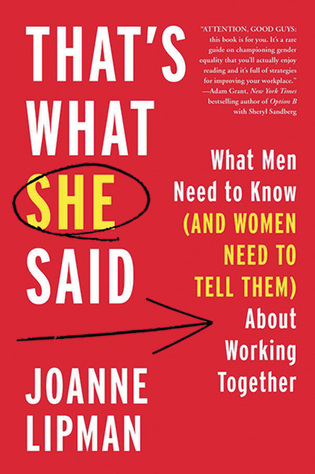 loading
loading
Reviews: May/June 2018 View full imageThat’s What She Said Annemie Turtelboom, a 2017 Yale Maurice Greenberg World Fellow, is a member of the Belgian Federal Parliament. Feminism today is less about conscious discrimination against women than about habits and traditions that continue to guide men’s behavior—without men being wholly conscious that it is discriminatory. The most visible case is captains of industry who claim that they cannot find the right women to correct the gender imbalance on their boards. In her new book, Joanne Lipman ’83, former editor-in-chief of USA Today, demonstrates with numerous examples, drawn from her own experience and from academic studies, how big the gap still is. She shows that inequality remains a huge problem, and she demonstrates that adding women to teams and boards is a genuine recipe for success: firms with the most female board members outperform those with the fewest female board members, on almost every financial measure. Having been the first female minister of the interior in my country, Belgium, I fully agree with Lipman. In daily business, I was treated without discrimination by my male colleagues. Nevertheless I could never escape the journalists’ question that is never asked of men: how do you combine job and family? Lipman argues that if women want men to help change engrained habits, it’s best not to treat men as the enemy. To reduce the gender gap without blame, she writes, the first step is creating awareness that it exists—that women are often overlooked, interrupted, or denied credit. The next step is to find remedies. She offers many ideas. For example, leaders can set rules that apply to all, such as disallowing interruptions in meetings. Applicants for a job can fill out exams anonymously. A woman’s colleagues can help call attention to her successes. We will not overcome discrimination unless everyone sees it. As the author writes: “If men are blind to the gender gap . . . we can hardly expect them to be partners in helping to close it.”
|
|